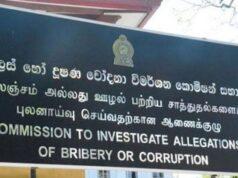By Shihar Aneez
ECONOMYNEXT –The Central Bank of Sri Lanka (CBSL) informed the members of the EPF, the country’s largest pension scheme, that it has opted for the government’s domestic debt optimization (DDO) option with a long-term view in the best interest of the members.
It said the two options given to the EPF under the parliament approved DDO were exchange option and non-exchange option.A central bank’s analysis showed the return on EPF could fall to as low as 6.79 percent if the DDO option was not chosen within the next 12 years as against 8.02 percent if opted for DDO.
Under the exchange option, the EPF can exchange a minimum required amount of existing Treasury bonds with 12 new Treasury bond series that mature from 2027 to 2038 and the new bonds are offered with a coupon rate of 12 percent per annum until 2026 and nine percent
thereafter. The EPF would continue to pay income tax at 14 percent per annum on its taxable income attributable from its Treasury bond portfolio.Under the non-exchange option, the existing Treasury bonds will be subject to a 30 percent tax rate on the taxable income of the Treasury bond portfolio.
“…the Monetary Board of the CBSL as the custodian of the EPF, having considered the two options available, decided to opt for the Debt Exchange offer with a long-term view in the best interest of the members of the Fund,” the central bank said in a statement.
The EPF has tendered 2,667.5 billion face value of Treasury bonds for debt exchange, including an additional 149 billion rupees in addition to the minimum participation requirement considering comparative benefits to the Fund, it said.
“The Government has accepted the same and issued new Treasury Bonds to EPF with an equivalent face value.”
President Ranil Wickremesunghe’s government got the parliament approval for the DDO early in July, but it was delayed as parliament could not amend the Inland Revenue Act in tandem with the DDO following fundamental rights cases filed by opposition and activists. However, the Supreme Court cleared the legal barrier early this month.
The central bank said the decision was taken after careful analysis by experts.
“The Monetary Board envisaged that out of the two options, Debt Exchange is distinctly the better option considering the assessments that have been carried out on the basis of several prudent and realistic assumptions,” it said.








